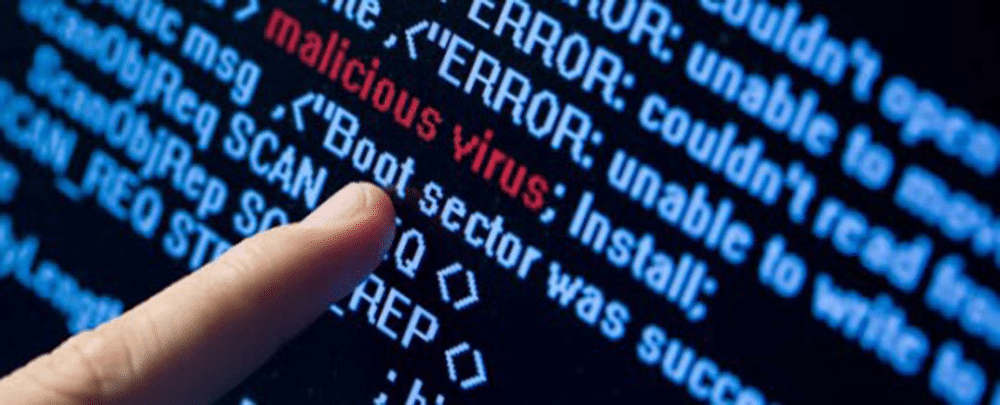What if all of your employees walked into the office one morning, turned on their computers, and a screen popped up with a message “Your Files Have Been Encrypted, Pay $25,000 in 24 hours or all of your files and the files on your network will be destroyed”?
That’s exactly what happened when a small manufacturer in the Utica area was the victim of a ransomware attack. Ransomware is a virus that encrypts all of the files on your hard drive. If a “ransom” isn’t paid, then your files will be deleted in 24 or 48 hours. It’s like a digital ticking time bomb and there is nothing you can do at that point. As a manufacturer, you likely have sensitive employee information, contracts, and CAD designs that contain IP unique to your business on the network.
Luckily, the President of this manufacturing company was smart enough to contact Corey Albrecht, Director of the Advanced Institute for Manufacturing (AIM), one of the 11 New York Manufacturing Extension Partnership centers across the state of New York. Corey was able to bring the right cyber experts together and get their business back to stability. This company was also smart enough to have backups, whereas many may think they have backups, but don’t realize they don’t until they need it. Maybe the backup hasn’t been run in over a year, or the backup files are corrupt and unusable. So even though this company didn’t have to pay the ransom to get their files back, it did cost their business $8,000 in lost productivity and other costs.
“The unfortunate thing is that even if you pay that ransom, you may be identified as a soft target” said Dr. Leonard Popyack. Dr. Popyack was one of the trainers in AIM’s ‘Cybersecurity for the Manufacturing Industry’ workshop held at the thiNCubator in Utica, NY on September 15, 2016. He went on to explain that “They (ransomers) may decide since you paid it the first time that you would pay it again”. So a month or two later you experience another ransomware attack.
Ransomware isn’t your only cyber security threat. Another manufacturer set up an open network drive (i.e. requiring no login) on their network to share CAD files with one of their contractors, and unbeknownst to them, became a victim of someone setting up a “dark server” on their network. This dark server was used for drug and human trafficking. After being raided by the FBI, their business still isn’t back in the clear.

Dr. Joshua White, an expert in Information Security, was another speaker at the workshop. He pointed out that Cybersecurity is the biggest problem facing manufacturing in 2016. According to Dr. White’s sources, 21% of manufacturers have already been hit by intellectual property theft.
Dr. White also went on to say that it’s just a matter of time before the Cybersecurity Act of 2015 which requires medical and financial industries to comply with various cyber regulations, is applied to the Manufacturing industry. But you shouldn’t wait until then to do something about it, the attacks are growing too rapidly.
If the company who was shut down by the FBI demonstrated that they had policies and best practices outlined in the Cybersecurity Act in place, then they might have let this company continue to operate if something like the dark server attack happens. Unfortunately, they did not.
That’s just one of the reasons why AIM has started this workshop. According to Executive Director Corey Albrecht, “The Mohawk Valley Region is very fortunate to have a number of educational institutions, research centers and private business all working within Cyber and Network Security. With all of this knowledge and experience in the region it made sense for AIM to develop a Cybersecurity Program and offer it to small and medium sized manufacturers. The manufacturing community is currently very high on the list of malicious hackers and this program will provide them with education, training and a secure network.”
The workshop is a great way of understanding your company’s risk and what you can do to protect your business. I know that the first thing I did when I got back to Albany was to back up my hard drive and make sure my anti-virus software was up to date. But there is a lot more to do to put the right policies and procedures into place and to even understand whether you might have already been hacked.
Tony Martino, a retired 20-year veteran of the Utica, NY Police Department where he directed the operation of the digital forensics laboratory and founded the Central New York Computer Crime Coalition, took workshop attendees through an Executive Risk Assessment. He stressed that it is crucial that you don’t wait for an attack to do something. Time and due diligence now can potentially even save your business in the future.
To learn more about the Cyber Security Workshop and services, submit a request for information, call 315-792-5300 or email Jack Altdoerffer at [email protected].

